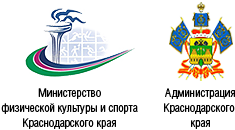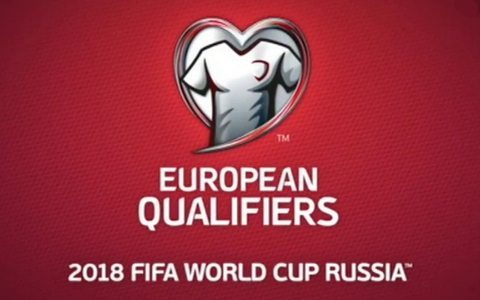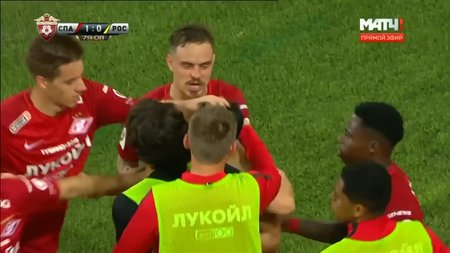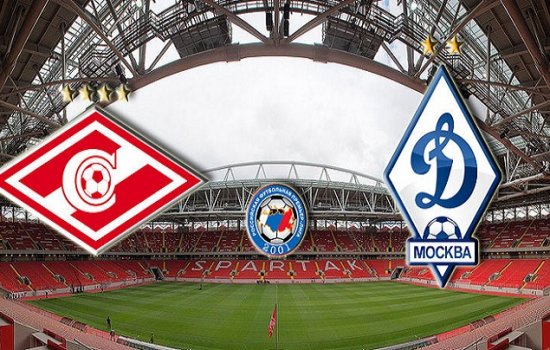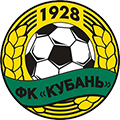Кубок Хорватии по футболу. Кубок хорватии по футболу
Кубок Хорватии по футболу - это... Что такое Кубок Хорватии по футболу?
Кубок Хорватии по футболу (хорв. Hrvatski nogometni kup) — ежегодно проводимый в Хорватии футбольный турнир и вторая по значимости футбольная клубная награда после чемпионата Хорватии.
Первый турнир был проведён в 1992 году. В нём участвовало 48 клубов. В настоящее время в турнире участвуют 64 клуба, до четвертьфинала играют по одному матчу для выяснения победителя. Начиная с четвертьфинала команды играют между собой два матча.
Победители Кубка Хорватии по футболу
Статистика по клубам
| Динамо (Загреб) | (12) 1994, 1996, 1997, 1998, 2001, 2002, 2004, 2007, 2008, 2009, 2011, 2012 | (4) 1992, 1993, 1995, 2000 |
| Хайдук (Сплит) | (5) 1993, 1995, 2000, 2003, 2010 | (4) 2001, 2005, 2008, 2009 |
| Риека | (2) 2005, 2006. | (1) 1994 |
| Осиек | (1) 1999 | (1) 2012 |
| Интер (Запрешич) | (1) 1992 | (0) |
| Вартекс (Вараждин) | (0) | (6) 1996, 1998, 2002, 2004, 2006, 2011 |
| Шибеник | (0) | (1) 2010 |
| Славен Белупо | (0) | (1) 2007 |
| Истра 1961 | (0) | (1) 2003 |
| Цибалия | (0) | (1) 1999 |
| Загреб | (0) | (1) 1997 |
См. также
Примечания
Ссылки
Категории:- Футбол в Хорватии
- Национальные футбольные кубки
Wikimedia Foundation. 2010.
- Кубок Хопмана 2008
- Кубок Хопмана 2009
Смотреть что такое "Кубок Хорватии по футболу" в других словарях:
Кубок мира по футболу — Кубок мира ФИФА Чемпионат мира по футболу (часто называемый также Кубок мира по футболу, Чемпионат мира ФИФА, официальное название Кубок мира ФИФА, общепринятое сокращение в русском языке ЧМ) самое важное международное футбольное соревнование.… … Википедия
Кубок Германии по футболу 2010/2011 — Кубок Германии по футболу 2010 11 Данные турнира Даты проведения: 13 августа 2010 21 мая 2011 Место проведения … Википедия
Кубок мира по футболу 2006 — ЧМ 2006 Чемпионат мира по футболу 2006 FIFA Fußball Weltmeisterschaft Deutschland 2006 … Википедия
Чемпионат Хорватии по футболу — Первая хорватская футбольная лига хорв. Prva HNL Страна … Википедия
Сборная Хорватии по футболу — Прозвища Пламенные (Vatreni), Шашечные, Рок банда Билича Конфедерация УЕ … Википедия
Суперкубок Хорватии по футболу — Страна Хорватия Основан … Википедия
Чемпионат Хорватии по футболу 2007/2008 — Чемпионат Хорватии по футболу 2007 2008 семнадцатый сезон Чемпионата Хорватии. Сезон стартовал 20 июля 2007 года. Победителем турнира стало загребское «Динамо», защитившее статус чемпиона. В чемпионате приняли участие 12 команд. По итогам сезона… … Википедия
Чемпионат Хорватии по футболу 2008/2009 — Первая Лига ХФЛ 2008 09 18 й розыгрыш турнира. «Динамо» (Загреб) защищает свой чемпионский титул. Первые матчи прошли 27 июля 2008 года, крайние пройдут 31 мая 2009 года. Турнирная таблица Место Команда И В Н П ГЗ ГП … Википедия
Чемпионат Хорватии по футболу 2006/2007 — Чемпионат Хорватии по футболу 2006/07. Положение команд Итоговое положение М. Команда В. Н. П. ЗШ:ПШ О 1. Динамо 30 2 1 84:22 92 2. Хайдук 22 6 5 60:26 72 3 … Википедия
Кубок мира ФИФА — Чемпионат мира по футболу (часто называемый также Кубок мира по футболу, Чемпионат мира ФИФА, официальное название Кубок мира ФИФА, общепринятое сокращение в русском языке ЧМ) самое важное международное футбольное соревнование. Чемпионат мира… … Википедия
biograf.academic.ru
 Опубликовать Опубликовать | скачать Реферат на тему: План:
ВведениеКубок Хорватии по футболу (хорв. Hrvatski nogometni kup) — ежегодно проводимый в Хорватии футбольный турнир и вторая по значимости футбольная клубная награда после Чемпионата Хорватии. Первый турнир был проведён в 1992 году. В нём участвовало 48 клубов. В настоящее время в турнире участвуют 64 клуба, до четвертьфинала играют по одному матчу для выяснения победителя. Начиная с четвертьфинала команды играют между собой два матча. 1. Победители Кубка Хорватии по футболу
2. Статистика по клубам
|
wreferat.baza-referat.ru
Кубок Хорватии по футболу - Gpedia, Your Encyclopedia
Перейти к навигации Перейти к поискуКубок Хорватии по футболу (хорв. Hrvatski nogometni kup) — ежегодно проводимый в Хорватии футбольный турнир и вторая по значимости футбольная клубная награда после чемпионата Хорватии.
Первый турнир был проведён в 1992 году. В нём участвовало 48 клубов. В настоящее время в турнире участвуют 64 клуба, до четвертьфинала играют по одному матчу для выяснения победителя. Начиная с четвертьфинала команды играют между собой два матча.
Победители Кубка Хорватии по футболу
Статистика по клубам
| Динамо (Загреб) | (15) 1994, 1996, 1997, 1998, 2001, 2002, 2004, 2007, 2008, 2009, 2011, 2012, 2015, 2016, 2018 | (6) 1992, 1993, 1995, 2000, 2014, 2017 |
| Хайдук (Сплит) | (6) 1993, 1995, 2000, 2003, 2010, 2013 | (5) 2001, 2005, 2008, 2009, 2018 |
| Риека | (4) 2005, 2006, 2014, 2017 | (1) 1994 |
| Осиек | (1) 1999 | (1) 2012 |
| Интер (Запрешич) | (1) 1992 | (0) |
| Вартекс (Вараждин) | (0) | (6) 1996, 1998, 2002, 2004, 2006, 2011 |
| Славен Белупо | (0) | (2) 2007, 2016 |
| НК Сплит | (0) | (1) 2015 |
| Шибеник | (0) | (1) 2010 |
| Истра 1961 | (0) | (1) 2003 |
| Цибалия | (0) | (1) 1999 |
| Локомотив Загреб | (1) 2013 | |
| Загреб | (0) | (1) 1997 |
См. также
Примечания
Ссылки
www.gpedia.com
Кубок Хорватии по футболу - WikiVisually
1. Хорватия – Croatia, officially the Republic of Croatia, is a sovereign state between Central Europe, Southeast Europe, and the Mediterranean. Its capital city is Zagreb, which one of the countrys primary subdivisions. Croatia covers 56,594 square kilometres and has diverse, mostly continental, Croatias Adriatic Sea coast contains more than a thousand islands. The countrys population is 4.28 million, most of whom are Croats, the Croats arrived in the area of present-day Croatia during the early part of the 7th century AD. They organised the state into two duchies by the 9th century, tomislav became the first king by 925, elevating Croatia to the status of a kingdom. The Kingdom of Croatia retained its sovereignty for nearly two centuries, reaching its peak during the rule of Kings Petar Krešimir IV and Dmitar Zvonimir, Croatia entered a personal union with Hungary in 1102. In 1527, faced with Ottoman conquest, the Croatian Parliament elected Ferdinand I of the House of Habsburg to the Croatian throne. In 1918, after World War I, Croatia was included in the unrecognized State of Slovenes, Croats and Serbs which seceded from Austria-Hungary, a fascist Croatian puppet state backed by Fascist Italy and Nazi Germany existed during World War II. After the war, Croatia became a member and a federal constituent of the Socialist Federal Republic of Yugoslavia. On 25 June 1991 Croatia declared independence, which came wholly into effect on 8 October of the same year, the Croatian War of Independence was fought successfully during the four years following the declaration. A unitary state, Croatia is a republic governed under a parliamentary system, the International Monetary Fund classified Croatia as an emerging and developing economy, and the World Bank identified it as a high-income economy. Croatia is a member of the European Union, United Nations, the Council of Europe, NATO, the World Trade Organization, the service sector dominates Croatias economy, followed by the industrial sector and agriculture. Tourism is a significant source of revenue during the summer, with Croatia ranked the 18th most popular tourist destination in the world, the state controls a part of the economy, with substantial government expenditure. The European Union is Croatias most important trading partner, since 2000, the Croatian government constantly invests in infrastructure, especially transport routes and facilities along the Pan-European corridors. Internal sources produce a significant portion of energy in Croatia, the rest is imported, the origin of the name is uncertain, but is thought to be a Gothic or Indo-Aryan term assigned to a Slavic tribe. The oldest preserved record of the Croatian ethnonym *xъrvatъ is of variable stem, the first attestation of the Latin term is attributed to a charter of Duke Trpimir from the year 852. The original is lost, and just a 1568 copy is preserved—leading to doubts over the authenticity of the claim, the oldest preserved stone inscription is the 9th-century Branimir Inscription, where Duke Branimir is styled as Dux Cruatorvm. The inscription is not believed to be dated accurately, but is likely to be from during the period of 879–892, the area known as Croatia today was inhabited throughout the prehistoric period
2. Динамо (футбольный клуб, Загреб) – Građanski nogometni klub Dinamo Zagreb, commonly referred to as GNK Dinamo Zagreb or simply Dinamo Zagreb, is a professional Croatian football club based in Zagreb. The club was founded in 1911 and they play their home matches at Stadion Maksimir. They are the most successful club in Croatian football, having won 18 Prva HNL titles,14 Croatian Football Cups and four Croatian Football Super Cups. The club has spent its entire existence in top flight, having members of the Yugoslav First League from 1946 to 1991. The club was founded in 1911 as HŠK Građanski, after the Second World War, the new communist regime considered clubs like HAŠK and Građanski as fascist and nationalistic. As such, they were banned, and, in 1945, NK Dinamo was founded as a club to act as a successor to HŠK Građanski. They entered the Yugoslav First League in its inaugural 1946–47 season, in their second season in Yugoslav top flight in 1947–48 they finished as Yugoslav champions which was their first major trophy. The club won three league titles and seven Yugoslav Cups. Amid the breakup of Yugoslavia and formation of the Croatian football league system, Dinamo are the only Croatian club with European silverware, having won the 1966–67 Inter-Cities Fairs Cup by defeating Leeds United in the final. They also finished runners-up in the competition in 1963 when they lost to Valencia. In order to reflect this in June 1991, it was renamed HAŠK Građanski and they won five league titles and participated in the 1998–99 and 1999–2000 UEFA Champions League group stages carrying that name before reverting to Dinamo Zagreb in February 2000. The teams traditional colour is blue, which has been replaced for European matches in recent times with the darker navy blue. The clubs biggest rivals are Hajduk Split, and matches between the two teams are referred to as Eternal Derby, Dinamo are currently reigning Croatian league champions having won their eleventh consecutive Prva HNL title in the 2015–16 season. Another notable match was a 0–0 draw against Manchester United in the 1999–2000 season, in the 21st century, a notable win for Dinamo Zagreb was also against Ajax in the 2007–08 season, beating them 3–2 in Amsterdam, and later advancing on away goals. In the immediate aftermath of World War II, the three most successful Zagreb-based clubs—HAŠK, Građanski and Concordia—were all disbanded by an issued by the communist authorities in May 1945. In order to them, a new sports society called FD Dinamo was founded on 9 June 1945. The new club inherited Građanskis colors and fan base, with most of Građanskis players continuing their careers at Dinamo. In the first few years, the club played their matches at Građanskis old ground, Stadion Koturaška
3. Чемпионат Хорватии по футболу – The Croatian First Football League, also known as Prva HNL or 1. HNL) or for reasons the MAXtv Prva Liga, is the top Croatian professional football league competition. The winners enter the qualifying stages of the UEFA Champions League, since its formation, the league went through many changes in its system and number of participating clubs. In the first three seasons two points were awarded for a win, from 1994–95 season this was changed to three points, each season starts in late July or early August and ends in May, with a two-month hiatus between December and February. Currently, there are 10 teams participating in the league, the first season started in February 1992 and ended in June 1992. A total of twelve clubs contested the league and at the end of the season no teams were relegated as it was decided that the league would expand to 16 clubs for the following season. This was followed by expansion to 18 teams in 1993–94 season. The following season, number of teams was reduced again to 16, 1995–96 Prva HNL was the first season to feature separate A- and B- leagues, with a complicated two-stage format to the season. Twelve teams contested the A league, while the B league, formally the second level, in March, the teams were split into three groups, Championship group, A play-off group and B play-off group. The first two teams of the B play-off group were placed in the A league for the following season, in the 1997–98 Prva HNL, the league consisted of 12 team and a new format was used. In March, teams were split into two groups of six, Championship and Relegation group, with 50% of their points taken to this phase of the competition. This system was used for two seasons, followed by 1999–2000 Prva HNL where each club playing every other club three times for a total of 33 rounds, next season featured a return of Championship and Relegation group system but without 50% points cutoff. This system was used until 2005–06 season, with an expansion to 16 teams in 2001–02 season. The 2006–07 season brought back a 33 rounds system previously used in 1999–2000 Prva HNL, in the 2009–10 season, the league was expanded to 16 teams. This lasted for three seasons, and in the 2012–13 Prva HNL season, the league was contested by 12 teams playing a total of 33 rounds, from the 2013–14 Prva HNL season, number of teams was reduced to ten. The leagues main sponsor is T-Hrvatski Telekom, owned by the German telecommunications firm Deutsche Telekom, at the end of the 2014–15 season, Croatian First Football League was ranked 17th in Europe. The winners of the 2015–16 Croatian Football Cup will qualify for the qualifying round of UEFA Europa League. The following ten clubs will contest the 2016–17 Croatian First Football League season, as of 2016, four of the 12 founding members of the league have never been relegated, Dinamo Zagreb, Hajduk Split, Osijek and Rijeka
4. Хайдук (футбольный клуб, Сплит) – HNK Hajduk Split, commonly referred to as Hajduk Split or simply Hajduk, is a professional Croatian football club founded in 1911, and based in the city of Split. The clubs home ground, since 1979, is the 35, 000-seat Poljud Stadium, Hajduk was founded by a group of Split students in a famous tavern known as U Fleků in Prague. Between the early 1920s and 1940, Hajduk regularly participated in the Kingdom of Yugoslavia national championship, following World War II and the formation of the Yugoslav league system in 1946, Hajduk went on to spend the entire SFR Yugoslavia period in top level. Their run continued following the breakup of Yugoslavia, as the joined the Croatian First League in its inaugural season in 1992. The clubs golden era came in the 1970s, when they won four Yugoslav leagues, Hajduk is also the only club in Yugoslav football history that has won 5 consecutive Yugoslav cups, and also the only unbeaten champion. Hajduks biggest European achievements are three European Cup quarterfinals, one UEFA Cup semifinal, and one Cup Winners Cup semifinal, the clubs main rivals are Dinamo Zagreb, and a match between the two is referred to as the Eternal Derby. Hajduk Split fans are called Torcida Split, who are the oldest organized firm in Europe, the inspiration of the name were Brazilian fans at the 1950 World Cup that were called Torcida. As of 2008 the club is a company, although not listed on the public stock exchange. It is one of two fan-owned sports teams in Croatia, numbering over 40,000 members and over 50 fan clubs situated mostly across Croatia and Germany. The club was founded in the centuries-old pub U Fleků in Prague, by a group of students from Split, Fabijan Kaliterna, Lucijan Stella, Ivan Šakić and Vjekoslav Ivanišević. They went to the pub following a match between AC Sparta and SK Slavia and decided it was time their own town founded a professional club and they all knew how popular the sport was in their home Split, and how well their friends can play. The club was registered with the authorities on February 13,1911. Be worthy of that great name, Hajduks were romanticized bandits that fought the rule of the Ottoman Turks. It is speculated that famed hajduk Andrija Šimić, who arrived in Split in 1902 to cheering crowds, was perhaps the inspiration for the name. The founders subsequently designed the emblem, and a group of Catholic nuns from a monastery in Split. Both the name and the board on the crest were found provocative by the Monarchy. Hajduk gathered the pro-Croat party of citizens of Split, Croat unionists or puntari and that is why the club specifically has the name hrvatski nogometni klub and has the Croatian coat-of-arms in its crest. The club itself was against the Austrian-Hungarian governments policy of not allowing the unification of the Croatian provinces, Hajduks first opponent were Calcio Spalato, the club of an autonomist party from in Split, and the match ended with a 9–0 victory for Hajduk
5. Риека (футбольный клуб) – Hrvatski Nogometni Klub Rijeka, commonly referred to as HNK Rijeka or simply Rijeka, is a Croatian football club, from the coastal city of Rijeka. During the reconstruction of Stadion Kantrida, their home ground. Rijekas traditional home colours are all white, the club was founded on 29 July 1946 as Sportsko Društvo Kvarner / Società Sportiva Quarnero. The clubs official name was changed to Nogometni Klub Rijeka on 2 July 1954, in the summer of 1995, the club management added the adjective hrvatski to the official name. HNK Rijeka are the third most successful Croatian football club, having won two Yugoslav Cups, three Croatian Football Cups, one Croatian Football Super Cup and the 1978 Balkans Cup, the club competes in Croatias top division,1. HNL, of which it has been a member since its foundation in 1992, the club was founded as SD Kvarner / SS Quarnero on 29 July 1946, after Rijeka was ceded from Italy to Yugoslavia following the end of World War II. The club was named after the Bay of Kvarner and the broader Kvarner region, in which Rijeka is the administrative centre. The clubs roots can be traced back to 1926, the founding of U. S. Fiumana, the two clubs used the same grounds and eight U. S. Fiumana players later played for Kvarner. During the early period in Yugoslavia, Kvarner had moderate success in various Yugoslav and they were relegated at the end of their inaugural season in the Yugoslav First League in 1946–47. Kvarner changed their name to NK Rijeka on 2 July 1954, Rijeka remained in the top tier for eleven consecutive seasons, until 1969, when they were once again relegated to the Yugoslav Second League. Despite finishing on top in four seasons in the second tier, with varying success, Rijeka remained in top tier until the breakup of Yugoslavia in 1991. The clubs greatest success during this period involved back-to-back Yugoslav Cup titles in 1978 and 1979, Rijeka were also a Cup runner-up in 1987, when they lost the final after a penalty shoot-out. In the Yugoslav First League, Rijeka never finished above the fourth place, in 1984, the club came closest to their first championship title, finishing only two points behind Red Star. Rijeka were also the best placed Croatian club in the Yugoslav First League in 1965,1984 and 1987, following the breakup of Yugoslavia, in 1992, Rijeka joined the Croatian First Football League in its inaugural season. Rijeka remain one of four founding member clubs that have never been relegated. In terms of greatest successes in this period, the club won three Croatian Cups, including titles in 2005 and 2006, and in 2014. Rijeka also finished as runner-up in 1994, HNL, the club finished as runner-up on five occasions, in 1999,2006,2014,2015 and 2016. In the final round of the 1998–99 season, a refereeing error denied Rijeka their first championship title, with one match to go, Rijeka were one point ahead of Croatia Zagreb, needing a home win against Osijek to secure the title
6. Загреб (футбольный клуб) – Nogometni klub Zagreb, commonly known as NK Zagreb or simply Zagreb, is a Croatian football club based in the Croatian capital city of Zagreb, currently playing in the First Croatian Football League. The club was founded in 1908, NK Zagrebs home ground since 1946 is Stadion u Kranjčevićevoj with reduced capacity of 8,850 where they only play their official competitive matches. The teams traditional colours are white shirts, shorts and socks which is the reason why they are referred to as Bijeli in Croatian. Also, NK Zagreb participated several times in the European competitions like UEFA Champions League, UEFA Cup Winners Cup, UEFA Intertoto Cup, the club was founded in 1903 as PNIŠK, being one of the first to be formed in Croatia. First secretary was Dragutin Baki, the president was Vilhelm Witte, since there werent any clubs to play with, the first official match was played between the clubs players divided into two groups in 1904. Ticket income from the match was 3 krone and 3 filirs, the first international match was played in 1905. Against Magyar champions Ferencváros on Magyar Athleticai Clubs pitch, home team won with a high 11–1 score. The players who played for Zagreb were, Filipčić, Schwarz, Todl, Mutefelija, Slavnič, Ugrinić, Polivka, Uhrl, Višinger, Koruna, and Torbić. However, after World War II, NK Zagreb has been overshadowed by larger, more successful clubs. One of the most notable matches Zagreb played was on 19 July 1973 when Great drama in Maksimir took place – a match between NK Zagreb and NK Osijek on Maksimir stadium. It was a second of two qualifying matches for entering the first league, the first one in Osijek ended 0–0 with attendance of 25,000. The second match was played in Maksimir because of demand for tickets – the attendance was 64,138 which broke the stadium record. Zagreb won the match after penalty kicks, lineup for this team was, Horvat, Gašparini, Tucak, Antolić, Ivanišević, Lipovac, Markulin, Čopor, Močibob, Rukljač, Smolek. Among NK Zagrebs more notable players was Ivica Olić who led the club to its first championship of the Prva HNL in 2002 with 21 goals scored in 29 appearances for NK Zagreb, also worth mentioning here is Joško Popović, 2nd top-goalscorer ever in Prva HNL. In the championship of 2002, NK Zagreb broke the duopoly of NK Dinamo, standard lineup for the champion team was, Vasilj, Stavrevski, Pirić, Ješe, Bulat, Poldrugač, Duro, Hasančić, Franja, Lovrek, Olić. There are two football competitions being played in Croatia – Cup and Supercup. NK Zagreb were finalist of Cup in 1997 and finalist of Supercup in 2002, the club was in debt, players not receiving wages for six months. Zagreb president Dražen Medić had several offers for players that would at least somewhat stabilized the situation in the first division club from Kranjčevićeva, strike was ongoing for a week ahead of matchday with players demanding to be paid at least partially
7. Осиек (футбольный клуб) – NK Osijek is a professional football club from Osijek in eastern Croatia. NK Osijeks early roots are found in club called NK Udarnik that was formed in 1945 under FPR Yugoslavias new communist authorities after the dissolution of HŠK Slavija. Slavija was founded in 1916 and competed in several editions of the league of the Kingdom of Yugoslavia between 1923 and 1940. In 1946, NK Udarnik and another local club NK Jedinstvo, on 2 February 1947, NK Slavonija merged with NK Bratstvo, again creating a new club, NK Proleter, a date that marks the formation of the present club NK Osijek. The clubs colours were red and blue, which in the 1970s were changed to white, the club entered the Yugoslav First League for the first time in 1953. On 1 September 1962, NK Proleter merged with the Boxing and Athletic Club Mladost, the football club started competing under the name NK Slavonija. Until the 1980s, the club played mostly in the Yugoslav Second League, in 1973, Osijek played Zagreb in a play-off for promotion to the First Division. In the second leg in Zagreb, Osijek lost on penalties in front of a record 64,000 attendance, in 1977, the club were promoted to the top division, where with the exception of one season, they remained until the collapse of Yugoslavia. Their best league position was sixth place in 1984, in 1992, in the first season of the new Croatian league, Prva HNL, Osijek finished third. The next two seasons saw weaker results, but in 1994–95, Osijeks Robert Spehar was the top scorer as the club finished third. They were eliminated in the first round by Slovan Bratislava, and they were eliminated from the UEFA Cup on away goals by Anderlecht, after winning 3–1 at home and losing 2–0 in Brussels. The same season, led by Jurica Vranjes, Osijek won their first national trophy, Cibalia led 1–0 until Mitu equalized in injury time, and in extra-time Davor Lasić scored a golden goal to win the cup for Osijek. The following season, Osijek lost 6–1 on aggregate to West Ham United in the UEFA Cup and finished in the third place in the league. In the 2000–01 UEFA Cup, Osijek beat the Danish club Brøndby and Rapid Wien but were eliminated by Slavia Prague in the third round, in 2000, Osijek were the Croatian leagues autumn champions, but finished the championship in third place. They equaled their best league finish in the 2007–08 season, finishing third for the sixth time, the clubs most famous former player is Croatias Davor Šuker, who won the Golden Boot at the 1998 World Cup. NK Osijek host domestic matches at Stadion Gradski vrt which has a capacity of 22,050, the teams fans are known as Kohorta. Slavonian derby match between the two largest Croatia Football Club from eastern Croatia, Osijek and Cibalia, each new match these two great rivals, means a great match on the field, but also in the stands where the overruling of Kohorta from Osijek and Ultrasi from Vinkovci. Players may hold more than one non-FIFA nationality, as of 6 January 2016 Note, Flags indicate national team as defined under FIFA eligibility rules
8. Цибалия (футбольный клуб) – HNK Cibalia, or just Cibalia, is a Croatian football club from the town of Vinkovci in eastern Croatia. Cibalia currently play in the Prva HNL, Croatias first tier and their stadium is located in the south part of their home town and can hold 12,000 spectators. The name Cibalia comes from the Roman settlement called Colonia Aurelia Cibalae which was the precursor of the town of Vinkovci. In the period from 1945 to 1990 the club was called Dinamo Vinkovci, the club was founded in 1919 as HGŽK Cibalia Vinkovci, and in 1925 the team merged with local rivals RŠK Sloga. In the 1930s the club was coached by Bane Sekulić, Károly Nemes, during World War II the club suspended all activities and ceased to exist. After the war re-established clubs Sloga and OFD Graničar merged and formed NK Dinamo Vinkovci which began competing within the Yugoslav football system, the club would see several humble decades before finally making it to the Yugoslav First League in 1982. They played in the league for five seasons until they were relegated to the Yugoslav Second League in 1987. In 1990 the team returned its name of Cibalia. The club spent much of the 1990s in the Prva HNL and it remained in the Prva HNL until the 2003–04 season when it was relegated to the Druga HNL. The club was penalized by UEFA in the same season with a deduction of six points for failure to fulfill financial obligations related to past player transfers. Nevertheless, in the 2004–05 season, Cibalia outdid all of its opponents in the league by a large margin, won the promotion playoffs. It was in season that they also had Croatian mixed martial arts legend Mirko Filipović play the final 8 minutes of a match vs HNK Vukovar. Cibalia also had success playing in the Croatian Cup, where it reached the final in 1999. The 2009–10 season was Cibalias best ever season in the top division of Croatian football and they finished third after giants Dinamo Zagreb and Hajduk Split, having spent most of the season in second position. They qualified for the qualifying round of the UEFA Europa League but eventually lost to Northern Irish side Cliftonville. Their main supporter group are called Ultrasi and their main rivals are the group Kohorta Osijek from NK Osijek. As of 01 September 2016 Note, Flags indicate national team as defined under FIFA eligibility rules, players may hold more than one non-FIFA nationality. Source, uefa. com, Last updated on 10 September 2010Pld = Matches played, W = Matches won, D = Matches drawn, L = Matches lost, GF = Goals for, GA = Goals against
wikivisually.com

